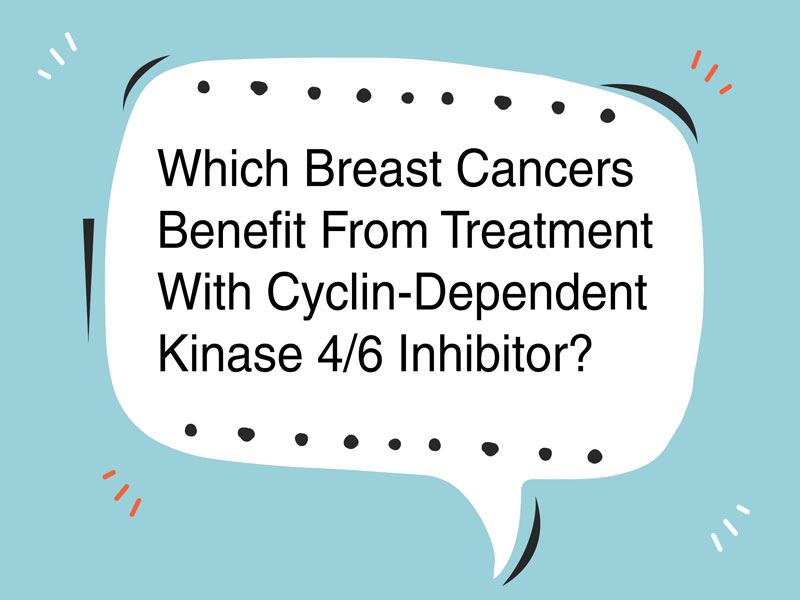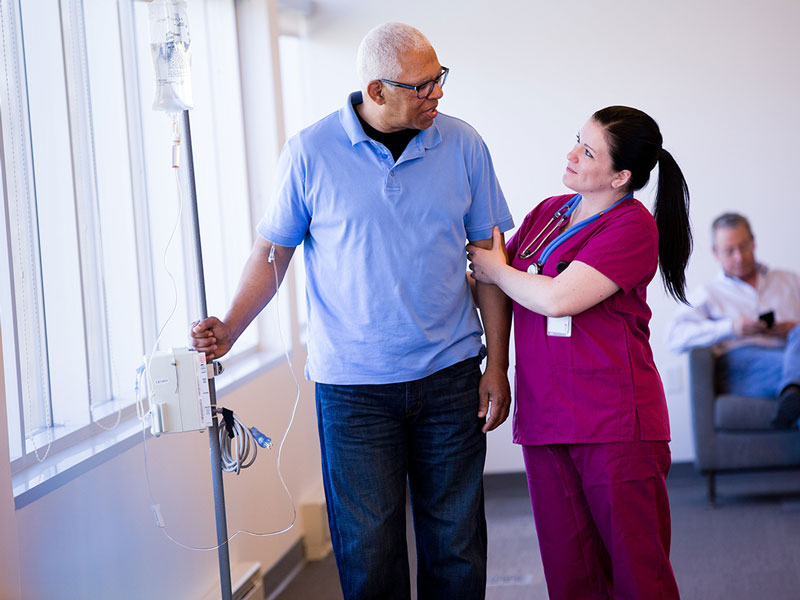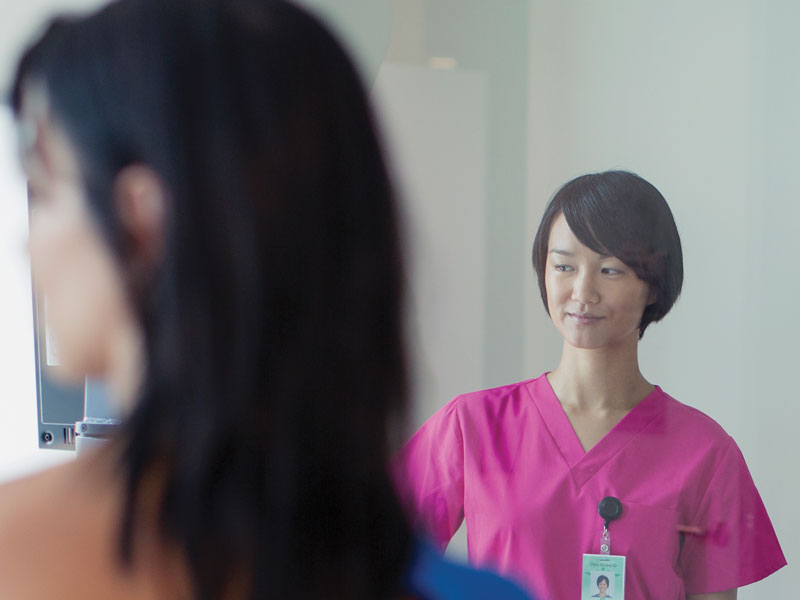Study Finds That Safety Decreases as Electronic Health Record Capability Increases

More needs to be known about how communication challenges and documentation affect ambulatory oncology care. In a presentation on Saturday, June 2, at the 2018 American Society of Clinical Oncology Annual Meeting, researchers revealed study findings about how patient safety is directly affected by electronic health record (EHR) capability and satisfaction, clinician communication, and clinicians’ actions.
- Read more about Study Finds That Safety Decreases as Electronic Health Record Capability Increases
- Add new comment
Which Breast Cancers Benefit from Treatment With Cyclin-Dependent Kinase 4/6 Inhibitor Treatment?

Which Breast Cancers Benefit from Treatment With Cyclin-Dependent Kinase 4/6 Inhibitor Treatment?
A. Newly diagnosed DCIS
B. Metastatic, triple negative
C. Premenopausal, neoadjavant
D. ER+ metastatic
- Read more about Which Breast Cancers Benefit from Treatment With Cyclin-Dependent Kinase 4/6 Inhibitor Treatment?
- Add new comment
Overcome Barriers to Applying an Evidence-Based Process for Practice Change

The evidence-based practice (EBP) process starts with a clinical question and then proceeds to searching and critically appraising the evidence. Once you have determined that a practice change is necessary, the next step is to integrate that evidence with clinical expertise and patient preferences and values. The last step in EBP is to evaluate the outcomes and disseminate the results. On paper, this flows in an orderly fashion. As clinicians, however, we know that it’s not often that easy or straightforward to change clinical practice. We often face barriers that can make it hard to change, but strategies exist to help facilitate practice change.
- Read more about Overcome Barriers to Applying an Evidence-Based Process for Practice Change
- Add new comment
What’s the Rate of Depression and Anxiety in Oncology Nurses?
The oncology nursing profession is a difficult career, fraught with long hours and stressful situations. With those factors, anxiety and depression could become more prevalent. In study findings published in conjunction with the 2018 American Society of Clinical Oncology Annual Meeting, researchers reported the rates of depression and anxiety among nurses working in oncology units and how certain situations related to these rates.
Nurses Should Focus on Goal Setting and Shared Decision Making in Cancer Aftercare Conversations
Goal setting and shared decision making are important components of aftercare for cancer survivors. In the results of a study published in conjunction with the 2018 American Society of Clinical Oncology Annual Meeting, researchers shared their experience developing and pretesting a systematic conversation approach for nurses to tailor the aftercare needs and goals of cancer survivors.
- Read more about Nurses Should Focus on Goal Setting and Shared Decision Making in Cancer Aftercare Conversations
- Add new comment
Organizational Learning and Perception Tied to Improved Patient Safety Culture
Patient safety is an important focus for hospitals: protecting patients improves outcomes and quality of care, meets standards, and ensures payments and reimbursement. But what factors contribute to a culture of safety? Researchers assessed and analyzed the components of patient safety culture and published their study findings in conjunction with the 2018 American Society of Clinical Oncology Annual Meeting.
- Read more about Organizational Learning and Perception Tied to Improved Patient Safety Culture
- Add new comment
Study Quantifies Data on NPs and PAs Caring for Older Adults With Cancer
Cancer is the most common diagnosis in adults older than 65 in the United States. As the older adult population increases and drives up malignancy diagnoses, nurse practitioners’ (NPs) and physician assistants’ (PAs) contributions to their care need to be better identified. In the results of a study published in conjunction with the 2018 American Society of Clinical Oncology Annual Meeting, researchers reported on their exploration of the role of NPs and PAs in the oncology workforce.
- Read more about Study Quantifies Data on NPs and PAs Caring for Older Adults With Cancer
- Add new comment
The Importance of Passion, Experience, and Resilience in Oncology Nursing

What makes a great oncology nurse? Is it opportunity and experience? Is it passion? I’ve worked with managers who’ve held wildly different opinions on these hiring characteristics, but I would argue they’re all critically important.
- Read more about The Importance of Passion, Experience, and Resilience in Oncology Nursing
- Add new comment
Here’s an Overview of the Types, Mechanisms, and Side Effects of Currently Approved Immunotherapies

Immunotherapy drugs fall into varying classes, each carrying its own mechanism of action and anticipated side effects. Although some side effects of immunotherapy may appear similar to those of chemotherapy (e.g., diarrhea, fatigue), they actually result from a totally different mechanism—meaning they require a different approach to management. Treating immunotherapy side effects as you would chemotherapy effects would likely result in patient harm.
- Read more about Here’s an Overview of the Types, Mechanisms, and Side Effects of Currently Approved Immunotherapies
- Add new comment
What You Need to Know About Obtaining Informed Consent

Informed consent is a comprehensive process as opposed to a check mark on a list of tasks to complete prior to starting cancer therapy. The American Society of Clinical Oncology/ONS Chemotherapy Administration Safety Standards explain that informed consent provides a patient with “sufficient information about the disease diagnosis and treatment options so that the individual can make a reasonable decision about treatment on the basis of an understanding of the potential risks and anticipated benefits of the treatment.”





